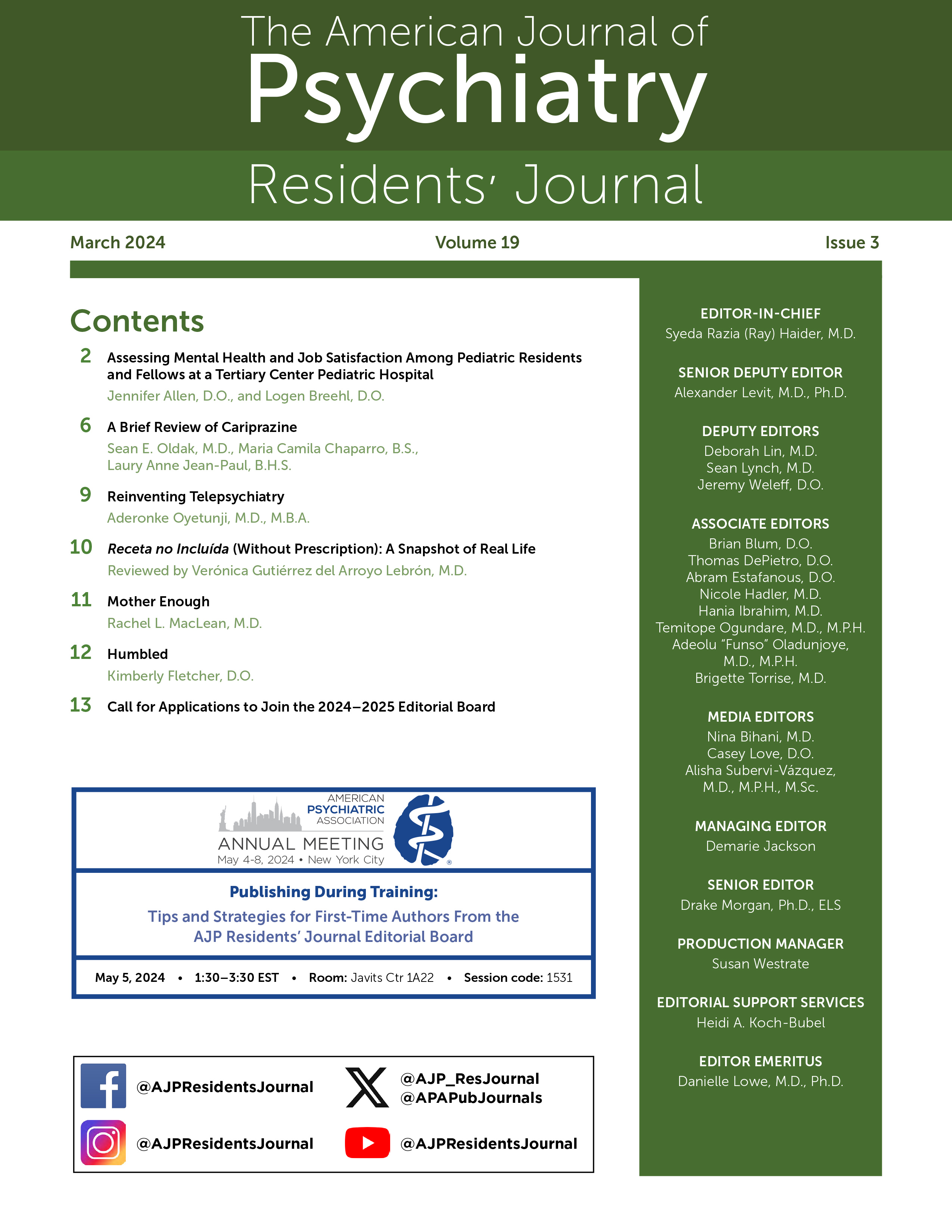Mother Enough
Child Protective Services (CPS) is coming to the unit.
Take the salon clips out of your hair, Lola. Wipe the eyeshadow from your eyes. Hide your tattoos.
In other words, erase your Blackness.
Silently, Lola retreats. She returns, face bare and smooth hair.
“How’s this, doctor?”
I struggle to meet her eyes.
A week earlier, physicians from the obstetrics unit at the outside hospital made the call. Hello, CPS? We have a 23-year-old Black female here. She’s talking to invisible people and asking funny questions. Maybe she’s paranoid. Her baby is 48 hours old. No meds, and no father in the picture.
Oh, by the way, her baby almost died during delivery. Forceps. Multiple subdural hemorrhages. Baby in critical care.
There’s no psychiatric unit at the outside hospital, so Lola comes to us. Her baby goes to the neonatal intensive care unit. Baby in an incubator; mom in a locked unit.
We meet Lola. She’s organized and only half as angry as she has the right to be. “The voices are old,” she says. They’re always the same. Meds calm them, but they’re expensive, and life is busy.
The voices tell Lola she’s an “ugly bitch.” High school was 5 years ago, but those girls still won’t leave her alone. Some people don’t get to grow out of their bullies.
Three days later, CPS is on the way.
“Will I lose custody?” Lola asks, smoothing her borrowed cardigan and staring at the ground.
We don’t know, Lola. We don’t know.
“All I want is to go home with my baby,” she says. Her millionth plea for the simplest thing. “Why is all this even happening?”
I wonder the same.
We can hope that the obstetrics unit did what they thought was right—that they wanted to protect the baby beyond the shadow of a doubt. But the question lingers: if her delivery had been normal, would she have ended up here? Even the outside hospital said it: her auditory hallucinations were nothing new.
No matter the reason, the call was made. Led by “Dr. S,” we prepare. Lola poses “minimal risk” as a parent, we conclude. She doesn’t even meet criteria for hospitalization.
But our own demons loom. We think she’ll be safe, but we might be wrong. So, do we advocate with ardor, as we’d hope somebody would for us? Or do we protect ourselves? The consequence of a false negative could be grave—for the baby and Lola and for our professional futures, too.
Dr. S, though, isn’t cowed. The meeting begins, and as Lola waits alone in the hallway, Dr. S stands firm: Lola acknowledges having chronic auditory hallucinations. But they don’t command her. They are hateful, but they do not influence her. Just because somebody hears voices does not mean they are unfit to parent.
As CPS leaves the unit, our social worker pulls me aside. It is rare for a physician to advocate so unequivocally for a patient, he tells me. In the end, it helps. Although CPS will visit Lola every 3 months for a year, she retains custody.
The next morning—the ordeal behind her—Lola gathers her few belongings and prepares to leave the unit. Her only request this whole stay was to see her baby. We couldn’t even grant her that. We give her a package of toys and clothes for her newborn, a paltry apology for everything.
Her family comes to the unit to pick her up. They ask the question directly: “How come her baby got hurt, but she’s the one in trouble?”
We have nothing to say.



